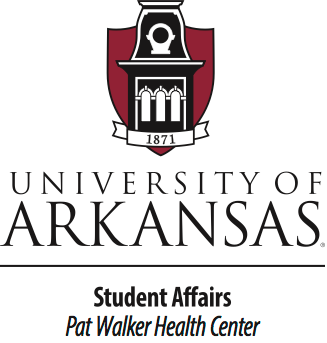The Arkansas Department of Health has identified nine confirmed cases of the mumps on the University of Arkansas campus at Fayetteville this fall semester, with additional cases still being investigated.
Pat Walker Health Center officials are working closely with the Department of Health to stop the spread of mumps.
Those who may have been exposed — or identified as having a higher-risk of contracting the virus — have received additional communication and directives directly from the health center or the Arkansas Department of Health.
Mumps is a contagious disease caused by a virus, and is best known for the puffy cheeks and tender, swollen jaw it causes. The virus is easily spread through coughing and sneezing, as well as from sharing food, drinks and vaping devices. It may take up to 26 days for a person to get sick after they have been infected.
Protect Against Mumps
The best way to protect against mumps is to get the measles, mumps and rubella vaccine, also known as the MMR, as well as practicing effective respiratory hygiene — washing hands often, covering coughs and sneezes, disinfecting surfaces, not sharing food and drinks.
The Centers for Disease Control recommends those born in 1957 or later receive two-doses of the MMR vaccine. Anyone born before 1957 is considered to be immune from mumps.
Students, faculty and staff are encouraged to make sure they are up to date on their MMR vaccination.
Any person without the recommended two-doses of the MMR vaccine will either need to be vaccinated immediately or be excluded from classes and class activities until transmission is no longer occurring on campus, per ADH requirement. Members of the campus community that are known to lack two doses of the MMR vacine have received additional communication and directives directly from the health center or the Arkansas Department of Health.
"The health, safety and well-being of our campus community are our top priorities," said Dr. Huda Sharaf, medical director for the health center. "We are taking every precaution necessary to ensure students, faculty and staff have the best information and resources available to protect themselves and others."
Although there is no treatment from mumps, those vaccinated with two doses of MMR vaccine are 88 percent less likey to contract the virus.
While the MMR vaccine prevents most cases, some people who received two doses of MMR can still get mumps, especially if they have prolonged, close contact with someone who is infected. However, they will likely have less severe symptoms than an unvaccinated person.
MMR Vaccine Available at Health Center
A MMR vaccine booster is also available for anyone who has already had the recommended two doses, and wants to take additional steps to protect themselves. The MMR vaccine booster costs $100, and can also be billed to insurance.
If you need to receive the MMR vaccine, please contact the Allergy, Immunization and Travel Clinic at 479-575-7723, or schedule an appointment through the patient web portal at myhealth.uark.edu.
"When contagious and infectious public health concerns impact our campus, it's imperative everyone is aware and ready to act," said Dr. Sharaf. "We encourage everyone to make sure they are up to date on the MMR vaccine, and to let their doctor know right away if they think they may have mumps"
What are symptoms of mumps?
Mumps usually causes the following symptoms for about 7 to 10 days:
- Fever
- Headache
- Muscle aches
- Tiredness
- Loss of appetite (not wanting to eat)
- Swollen glands under the ears or jaw
Some people who get mumps do not have symptoms. Others may feel sick but will not have swollen glands.
Mumps can be serious, but most people recover completely within a few weeks. Someone with mumps is considered most contagious three days before the onset of symptoms, and until five days after jaw swelling develops.
If you believe you have been exposed to mumps, or experience symptoms, isolate yourself from others and call your medical provider right away. Do not go to class, work or public places.
For more information, go to www.cdc.gov/mumps or health.uark.edu. If you have any questions, contact the Pat Walker Health Center at 479-575-4451, or email pwhc@uark.edu.
Contacts
Zac Garrett Brown, assistant director of communications
Pat Walker Health Center
479-575-4649,
